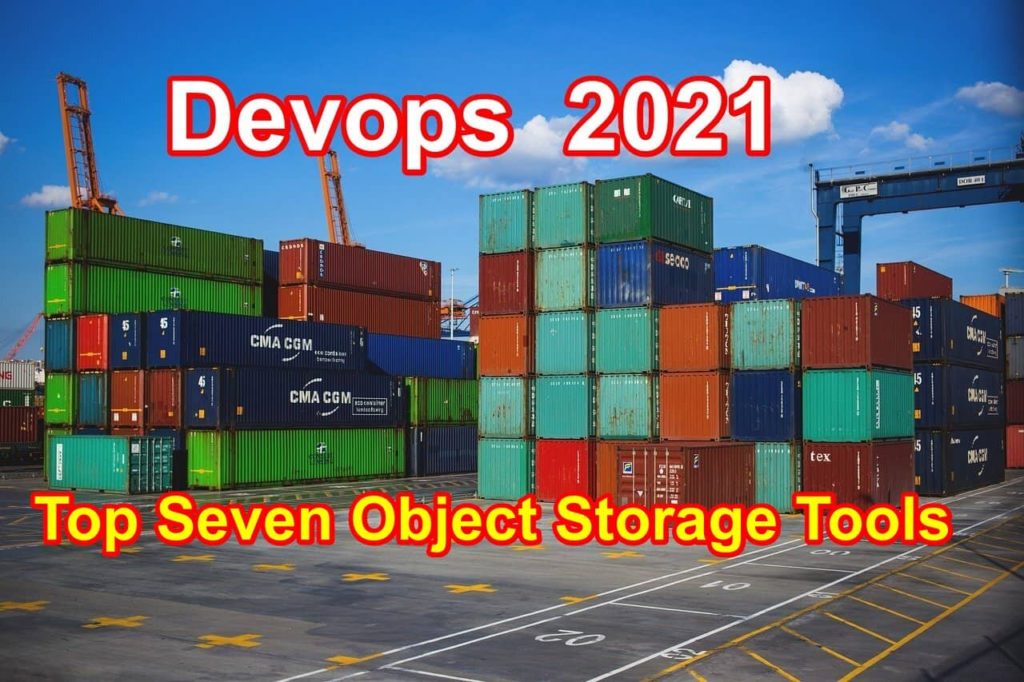Top Seven Object Storage Tools to consider in 2021
With the increase in the adoption of Cloud computing technology and digitization across the globe, every company wants their data to be available readily and flexible to everyone. This can be achieved if the data is stored globally in different locations with multiple copies. Object storage is the way you can store a huge amount of data as an object containing metadata referring to the main data, and each metadata is identified by a unique ID, the stored data can be of any type.
Object storage provides a cost-effective way of storing massive unstructured data which is not possible with traditional alternatives. It ensures data quality and security throughout the distributed system. You can access and download data from any location. There are many Object storage tools available in the market which you can implement in your organization as per your business need. Each tool has its benefits and way of handling data.
In case you have not read our previous post on “Exploring Object Storage in 2021“, you can read it here and get a background on object storage.
Choosing the right Object storage option for your organisation might be a challenging task. So we are sharing some of the most popular Object storage tools in the industry, which could be a good fit for your Devops toolchain.
1. AWS S3
If you are already working on the cloud then you must have heard of AWS S3, which is commonly used as object storage. You do not have to worry about the amount of data you have, it can handle a massive amount of data.
- This tool offers you the highest durability of 99.9999%.
- You can easily upload and download data using APIs.
- AWS manages lifecycle and helps in object transition from one storage class to another.
- It ensures that the data is stored near to the customer for easy data access and retrieval.
- It enables you to maintain data replication for backup purposes.
2. Google Cloud Storage (GCS)
Google provides a low-latency storage facility that is suitable for small to large enterprise businesses. It offers you four types of storage- multi-regional (for streaming videos and web content), regional (store and run data analytics), nearline (store rarely accessed data), and coldline (store very rarely accessed data).
- It also offers a data lifecycle that allows you to move data from one storage type to another. This tool allows you to store data worldwide and ensure data redundancy.
- It introduced a pay per use feature which costs the users for their data request only.
3. StackPath
This Object storage is available at a low cost and ensures high performance. It is fully integrated with no hidden tricks and comes with robust system architecture.
- Once you start using it, you will feel it is better than other provided Object storage in terms of performance. You can even enhance its performance by integrating it with the CDN of StackPath.
- Once you write the data to the bucket, you can access it immediately.
- It is a cost-effective tool as there is no extra cost charged for data transfer or API calls while delivering it over CDN.
4. LakeFS
It is an open-source tool that is used with data lakes Object storage. The data is stored in raw format centrally through a repository.
- There is a lack of communication between the entities which is overcome by LakeFS data versioning.
- With the help of S3 or GCS, it can scale up to petabytes of data.
5. Cloud Files
- This tool is introduced by Rackspace and is powered by OpenStack that provides scalable cloud storage.
- It integrates with AKAMAI CDN that ensures faster data access worldwide.
- Using this storage you can keep your file either public or private.
- It offers a feature like a temporary URL that allows users to access that link for a limited time.
6. Alibaba OSS
- It is an object storage service that offers 99.9% availability.
- It cost the user as per their request without any long-term commitment.
- With the help of Alibaba OSS, you can handle more than 50,000 requests per second.
- It also ensures data security from unauthorized login attempts.
7. Azure Blob Storage
Azure Blob Storage is introduced by Microsoft to be used for the cloud. It can handle any amount of unstructured data. It allows the user or application to access data in blob storage using HTTP/HTTPS irrespective of the data location. It has high availability, strong consistency, and better disaster recovery capabilities.
This storage is designed for-
- Providing images or document files directly to the browser.
- It allows you to store files for distributed access.
- It helps you to write to log files.
- It allows you to store data for recovery and backup.
It offers three types of different resources- storage account, the container in that storage account, and blob in that container.
Conclusion
Object storage is indeed a great way to store data when scalability is the utmost concern. We have shared some of the popular object storage options in the Devops ecosystem. However which one is the best fit for your pipeline is a call that you need to make based on your current setup and your business needs.

